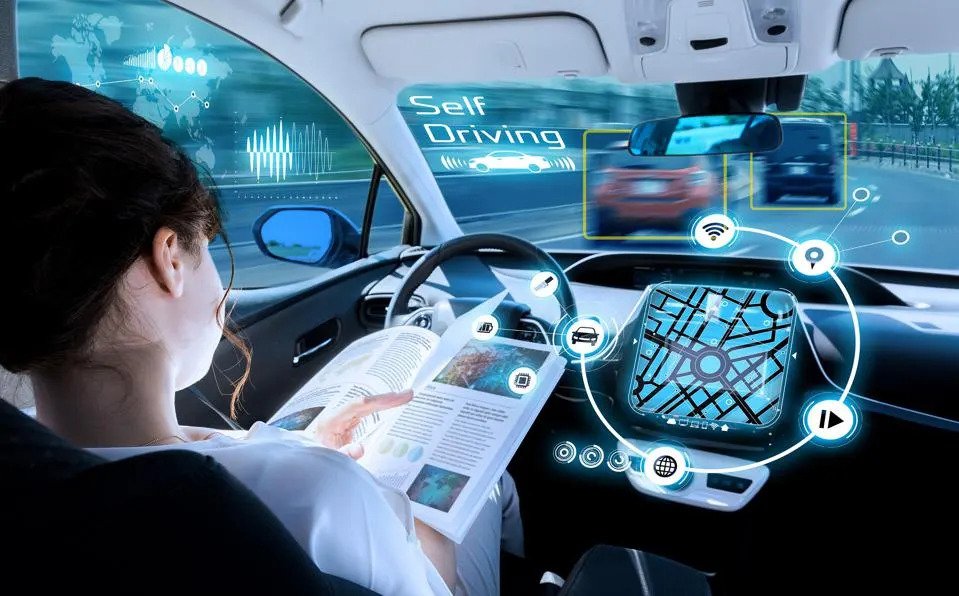The Use of AI in the Development of Autonomous Vehicles
(This article was partially generated by AI. You can test it on ZeroGPT.cc)
Autonomous vehicles, or self-driving cars, have been a topic of discussion for many years, and the technology is rapidly advancing. One of the key factors in the development of autonomous vehicles is the use of artificial intelligence (AI). AI has the ability to process vast amounts of data quickly and accurately, and this makes it an ideal tool for the development of autonomous vehicles. However, there are also a number of challenges and ethical considerations that need to be taken into account. In this article, we will explore the role of AI in the development of autonomous vehicles, the advantages of autonomous vehicles, the challenges and ethical implications, and the future of autonomous vehicles and AI.

The Role of AI in the Development of Autonomous Vehicles
AI plays a crucial role in the development of autonomous vehicles. One of the key components of autonomous vehicles is the ability to perceive and understand the environment in which they are operating. This includes the ability to identify objects such as other vehicles, pedestrians, and obstacles, and to make decisions based on that information. AI algorithms are used to process the vast amounts of data gathered by sensors and cameras on the vehicle, allowing it to make decisions in real-time.
There are several advantages to using AI in the development of autonomous vehicles. One of the key advantages is the ability to process large amounts of data quickly and accurately. This allows the vehicle to make decisions based on real-time data, and to react quickly to changes in its environment. AI algorithms can also learn from past experiences, allowing the vehicle to improve its performance over time.
Challenges and Ethical Implications of Autonomous Vehicles
While there are many advantages to autonomous vehicles, there are also a number of challenges and ethical implications that need to be taken into account. One of the potential challenges is the impact on employment. The widespread adoption of autonomous vehicles could lead to job loss for drivers, including truck drivers and taxi drivers. This could have a significant impact on the economy and on individual workers.Another challenge is the potential cybersecurity risks associated with autonomous vehicles. As these vehicles become more connected and reliant on data, they also become more vulnerable to cyber attacks. This could lead to serious safety risks, as well as potential privacy concerns for users.
There are also a number of ethical considerations surrounding accidents and liability. In the event of an accident involving an autonomous vehicle, it may be difficult to determine who is responsible for the accident. This raises questions about liability and the need for clear regulations and guidelines around the use of autonomous vehicles.
Advantages of Autonomous Vehicles
Despite these challenges and ethical considerations, there are many potential advantages to autonomous vehicles. One of the key advantages is improved safety. Autonomous vehicles have the potential to reduce the number of accidents on the road, as they are able to react more quickly to changes in their environment and are not subject to human error.Another advantage is increased efficiency and reduced traffic congestion. Autonomous vehicles can communicate with each other and with infrastructure, allowing for smoother traffic flow and reduced congestion. This can have significant benefits for both individuals and businesses.
Finally, autonomous vehicles have the potential to increase accessibility for those who cannot drive. This includes individuals with disabilities or those who are too young or too old to drive. Autonomous vehicles can provide greater independence and mobility for these individuals, improving their quality of life.
Future of Autonomous Vehicles and AI
The future of autonomous vehicles and AI is exciting and full of possibilities. Predictions for the future include increased adoption of autonomous vehicles in both personal and commercial use, as well as the potential for new business models and revenue streams.
However, there are also challenges that need to be addressed in order for this future to be realized. These include the need for clear regulations and guidelines around the use of autonomous vehicles, as well as addressing concerns around cybersecurity and ethical considerations.
One potential solution is the use of a "black box" system, similar to those used in airplanes, that records data on the vehicle's operation and can be used to determine the cause of accidents. This could help address concerns around liability and accountability in the event of an accident.
There is also a need for continued research and development in the field of AI, including the development of more sophisticated algorithms and sensors. This will be essential in ensuring the safety and reliability of autonomous vehicles.Conclusion
The use of AI in the development of autonomous vehicles has the potential to revolutionize the way we travel and do business. While there are challenges and ethical considerations that need to be taken into account, the advantages of autonomous vehicles are significant. Improved safety, increased efficiency and accessibility, and new business models are just a few of the potential benefits.
As we move forward, it is important to address the challenges and ethical considerations associated with autonomous vehicles, and to continue to invest in research and development in the field of AI. Only then can we fully realize the potential of this exciting technology.